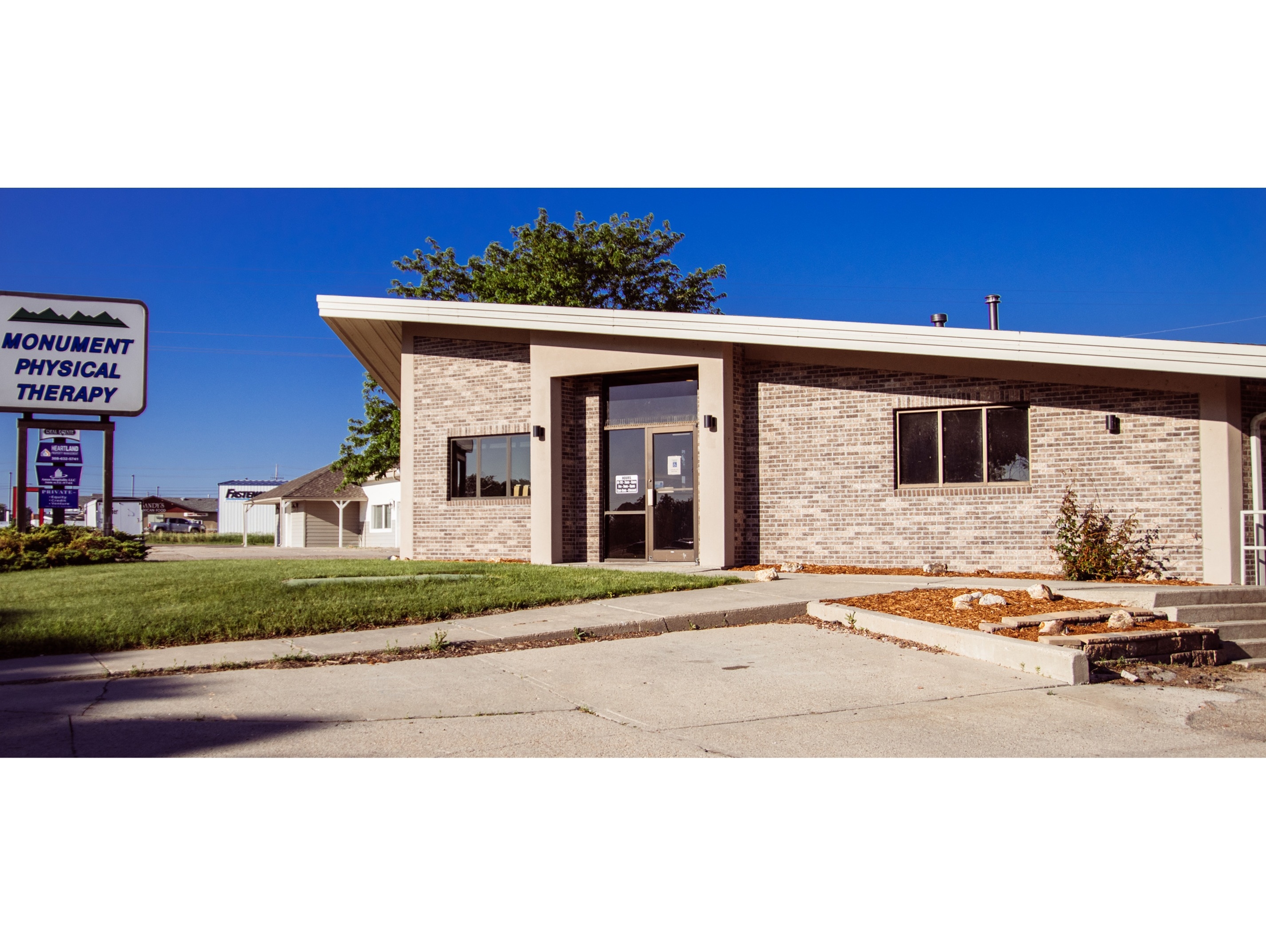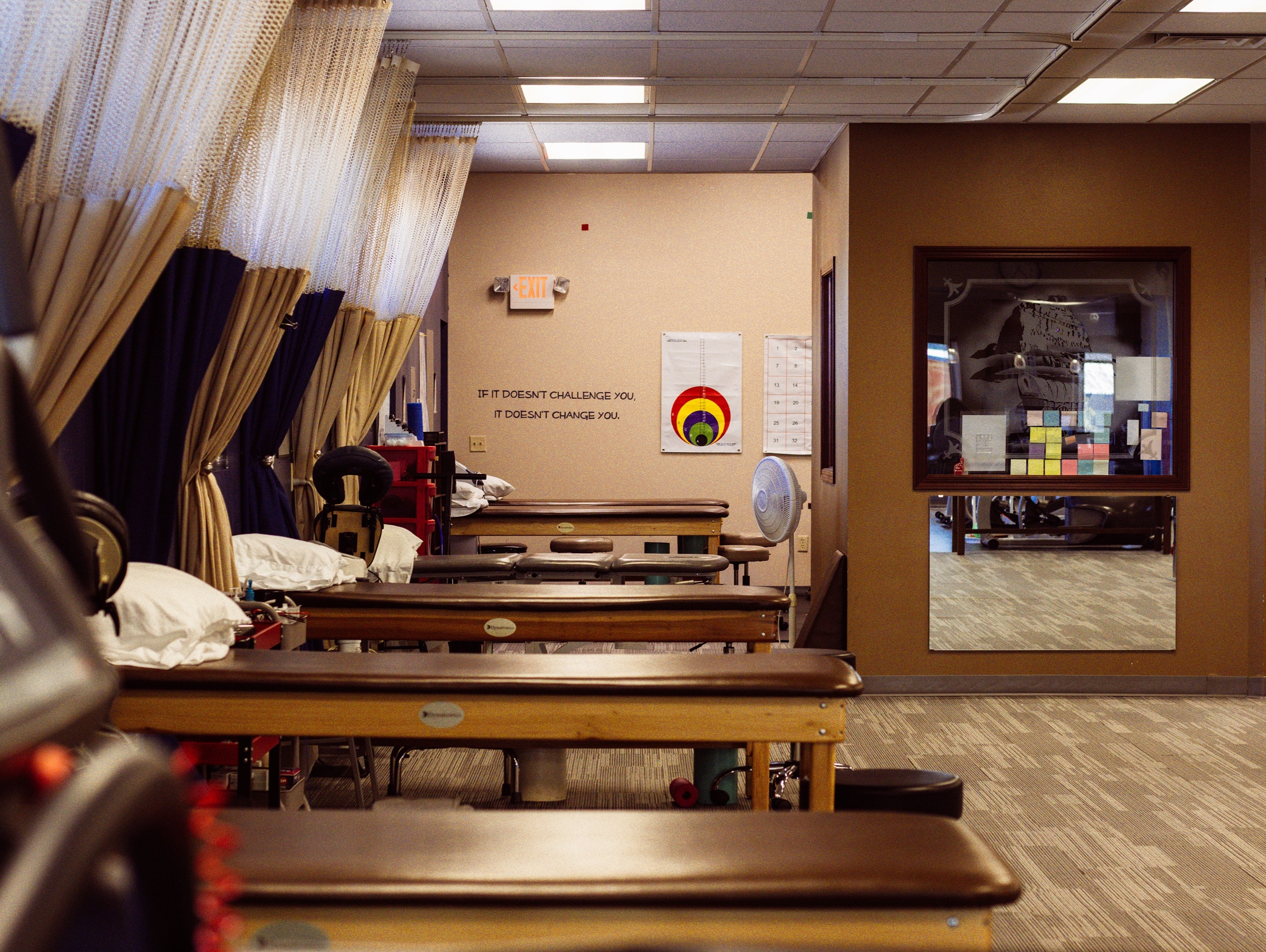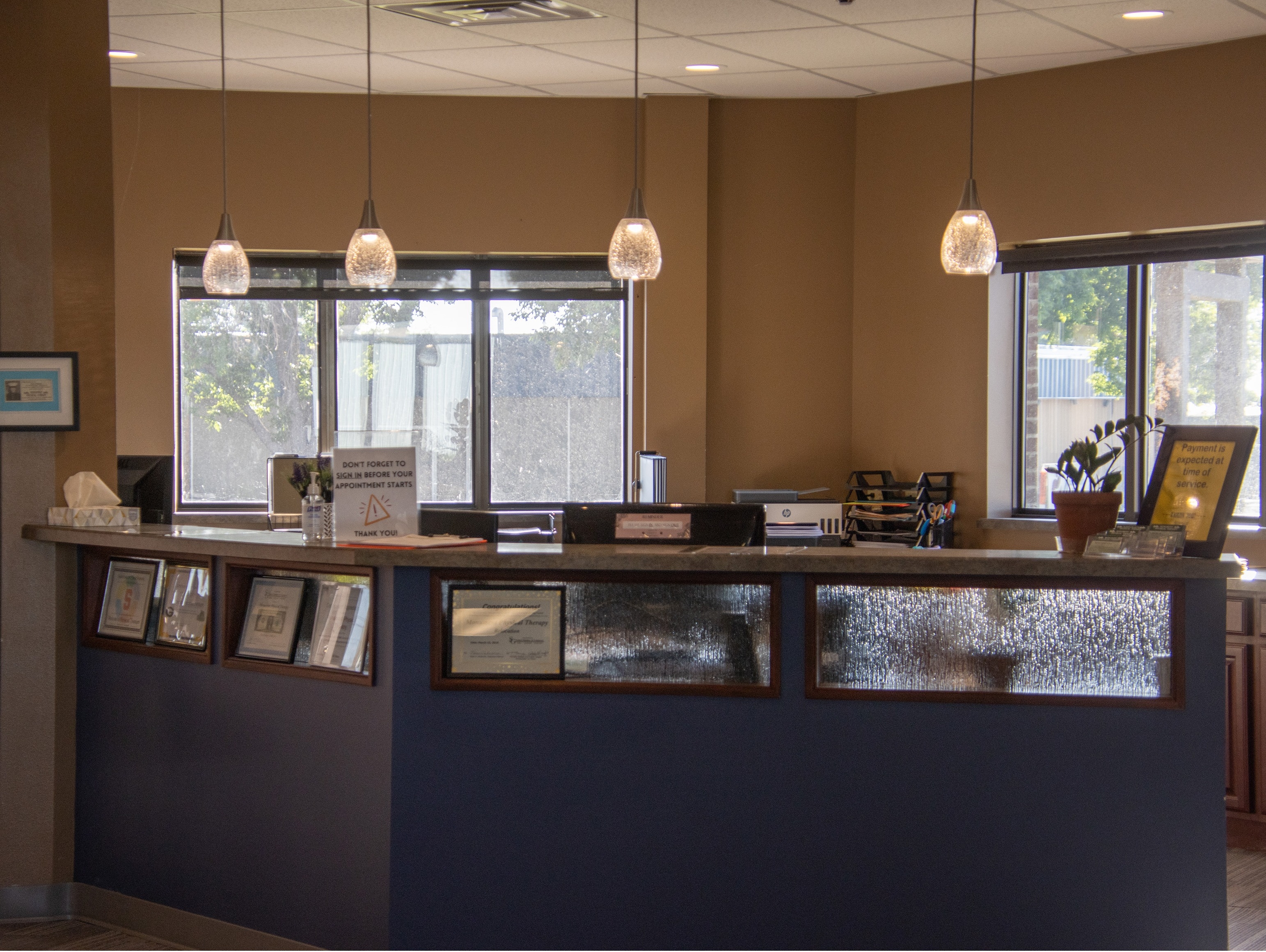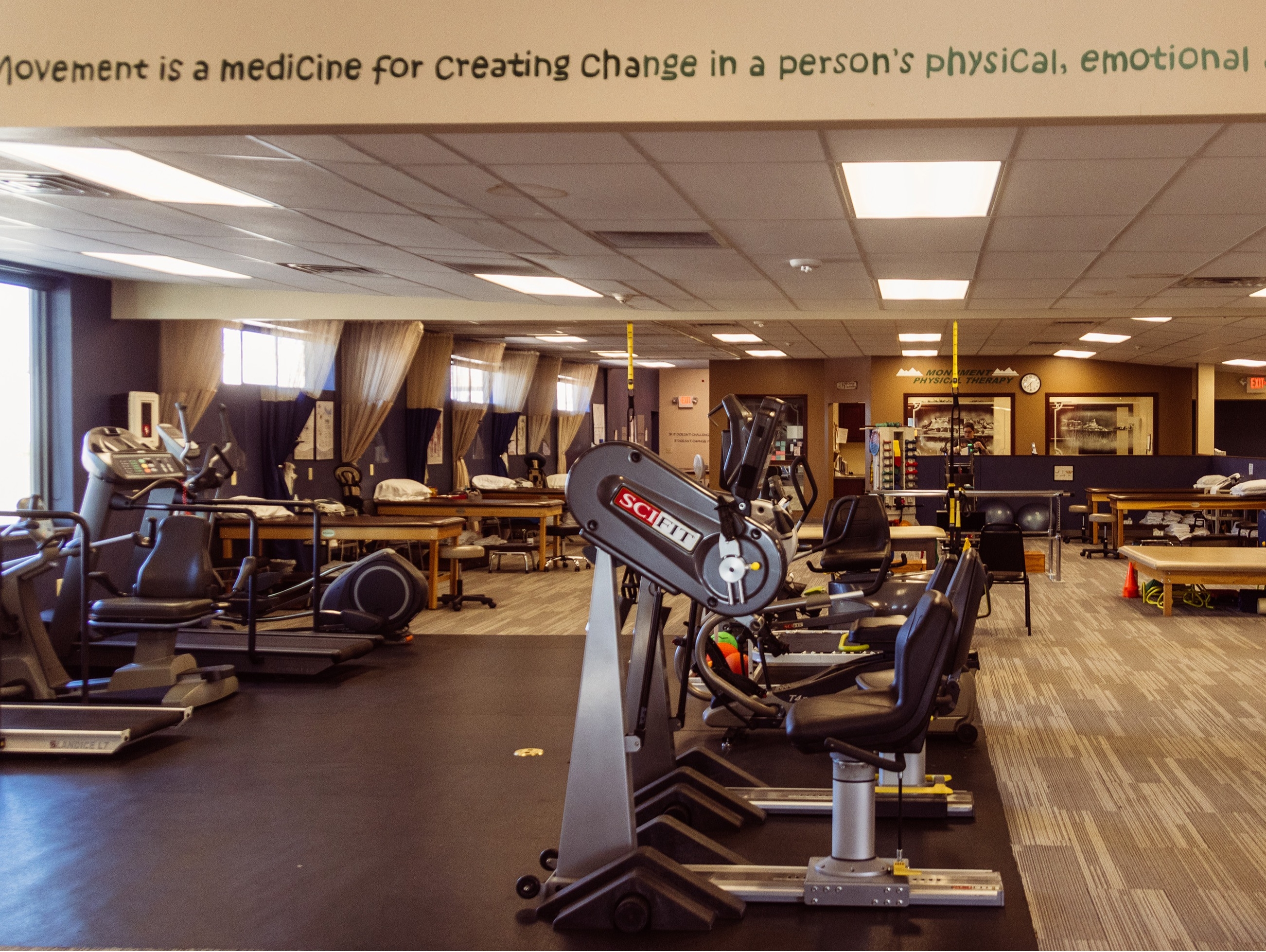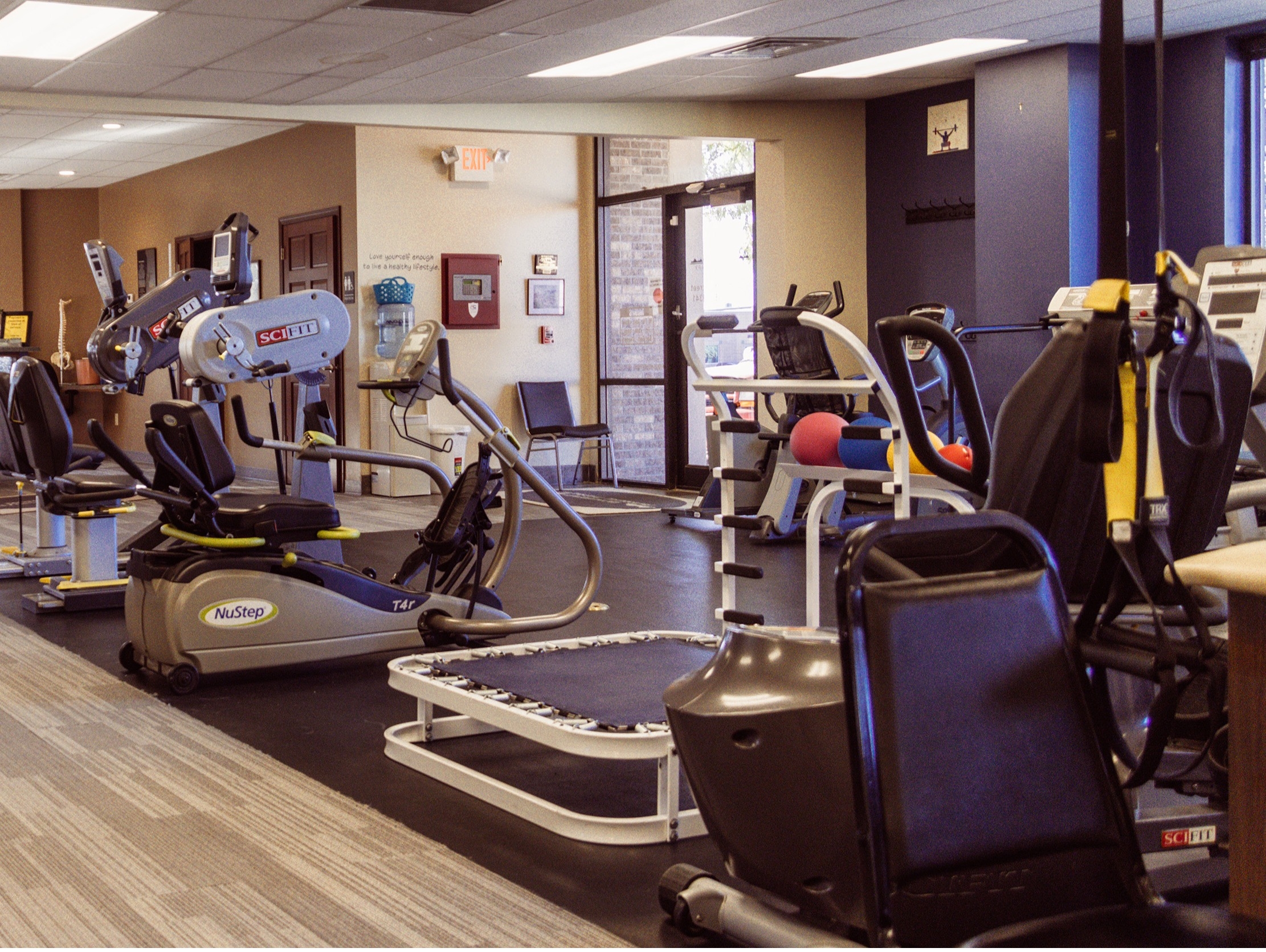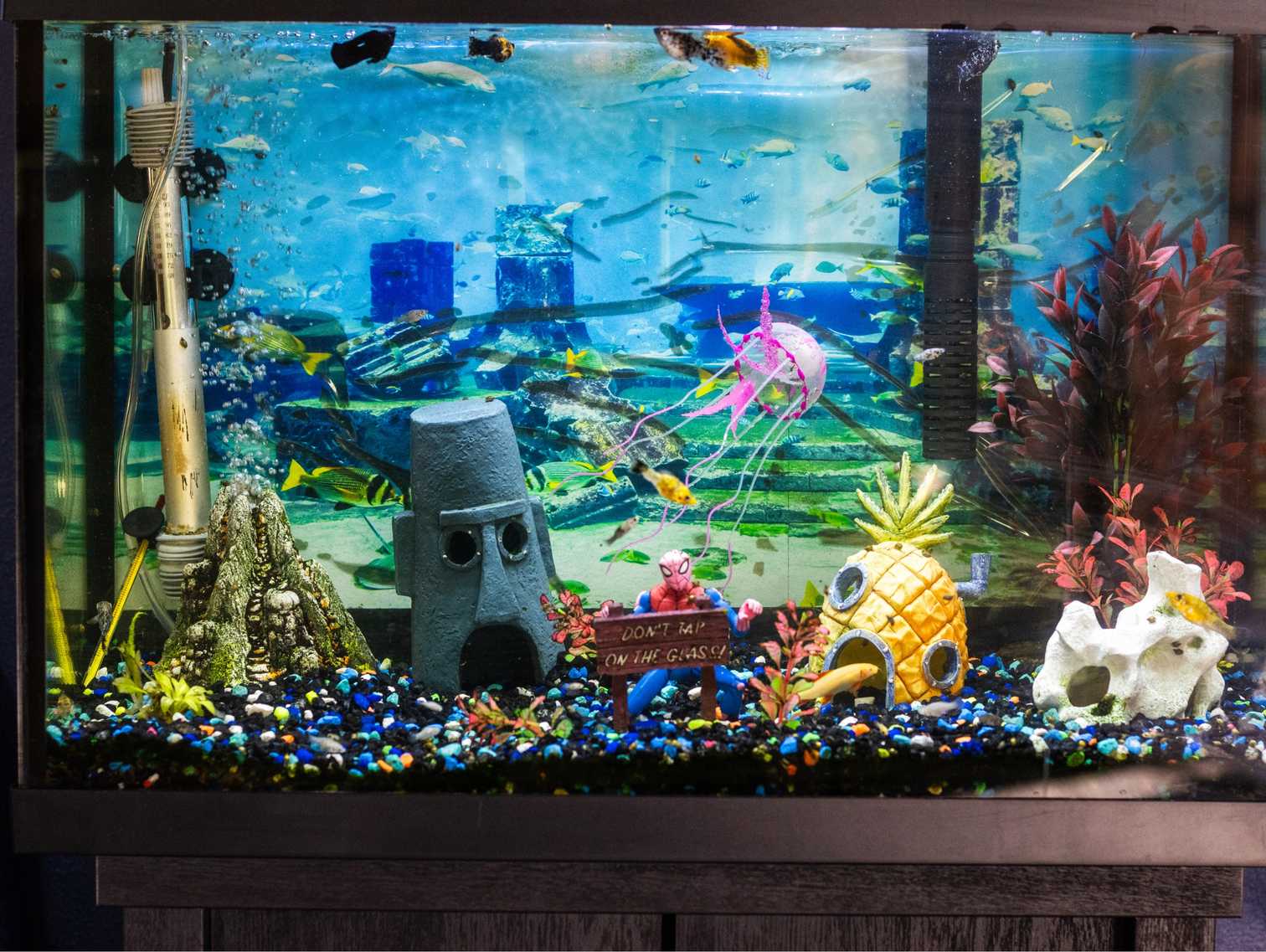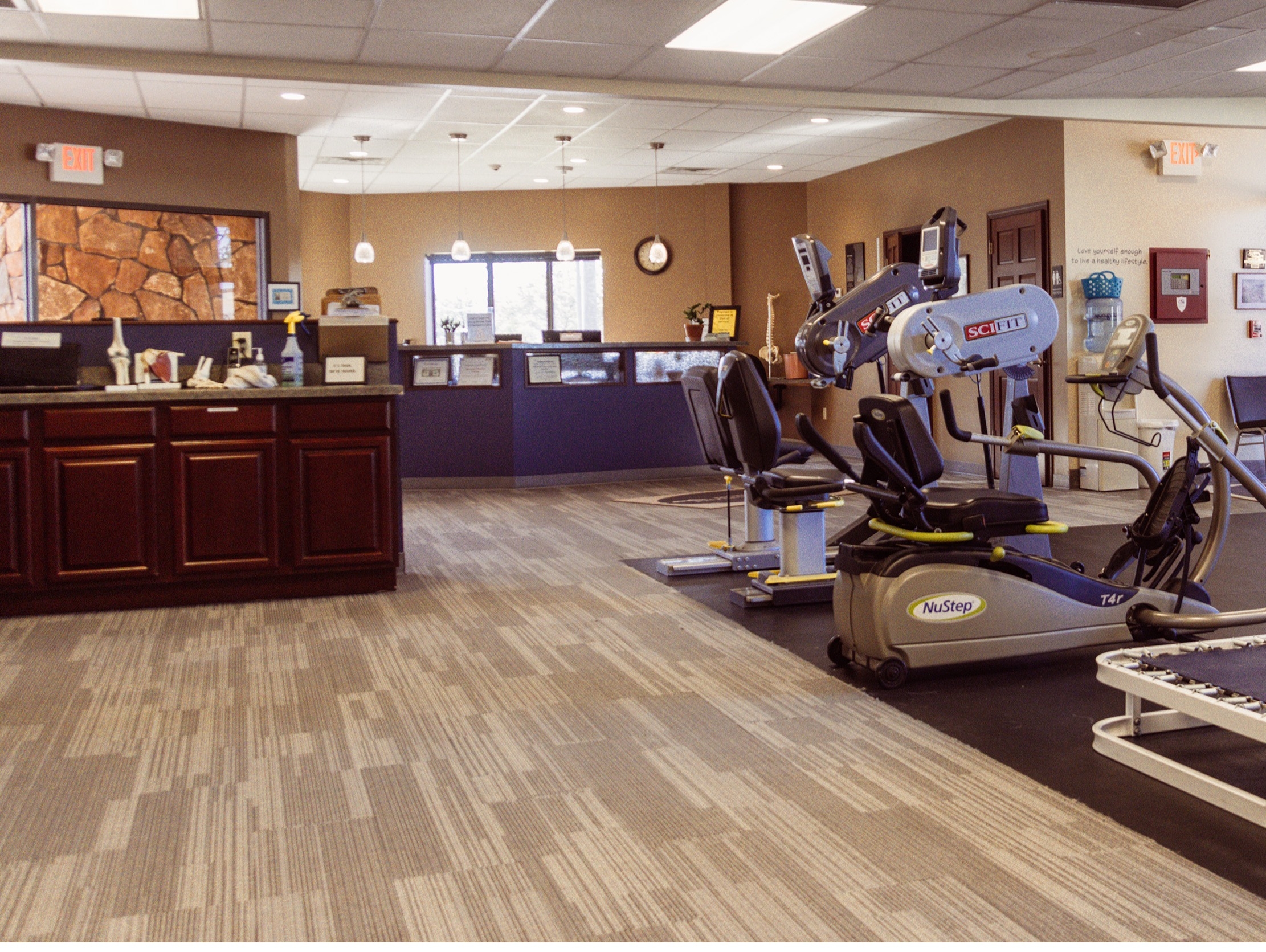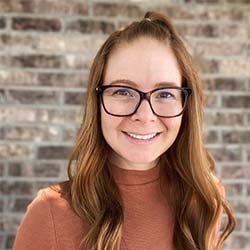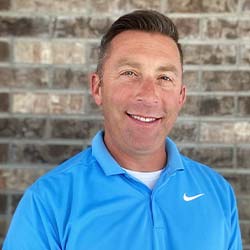Monument Physical Therapy - Gering
Monument Physical Therapy is a therapist-owned practice specializing in delivering individualized care for patients of all ages. We have been serving the Scottsbluff/Gering valley since November of 2009. We are excited to offer rehabilitation services including orthopedics, post-operative care, stroke rehabilitation, vestibular rehabilitation, women's health, pediatrics, work hardening, functional capacity evaluations, and aquatics.
We provide treatments such as biofeedback, dry needling, Graston technique, cupping therapy, blood flow restriction, and kinesio taping to offer our patients the latest and most advanced procedures in manual therapy available for faster and better results. Monument Physical Therapy's staff provides treatment for athletes before and after games to keep them at the top of their game.
Our goal is to provide the most complete care for each individual patient. To learn more call or stop by and see how we can serve you.
Location Details
Hours: Mon - Thurs: 7AM - 6PM, Fri: 7AM - 5PM
Fax: 308-633-5365
Services Offered
- Arthritis Pain
- Back Pain
- Back School Presentations
- Balance and Vestibular Rehab
- Biofeedback
- Biomechanical Gait Analysis
- Body Mechanics Training
- Chronic Pain
- Cupping Therapy
- Custom Foot Orthotics
- Custom Splinting
- Cupping Therapy
- Ergonomic & Worksite Evaluations
- Fine Motor Dexterity
- Functional Capacity Evaluation
- Graston Techniques
- Hand Therapy
- Headache
- ImPACT Concussion Testing
- Kinesio taping
- Modalities
- Myofacial Techniques
- Neck Pain
- Neurological Services
- OCS, Orthopedic Clinical Specialist
- Orthotic Fabrication
- Orthopedic Service
- Pediatric Therapy
- Pool Therapy
- Post Cancer Treatment
- Pregnancy & Postpartum Treatment
- Pre/Post Surgical Rehab
- Pre-Employment Screening
- Return to Work Screening
- Return to Sport Exercise Program
- Running Injuries
- Self-Care Skills
- SFMA - Selective Functional Movement Assessment
- Spine Care
- Sports Medicine
- Sportsmetrics
- Stroke Rehabilitation
- Tendonitis
- TMJ
- Torticollis
- Trigger Point Dry Needling
- Vestibular Rehabilitation
- Women's Health
- Work Hardening / Conditioning
- Work Injuries
- Worksaver Certified Work Physicals
- Wound Care
- Pelvic Rehabilitation
Latest News & Info
Are You A Superhuman?
By Monument PT - March 1, 2018
The answer… They are NOT Superhuman. Yes, there are years of physical training involved, but that answer is too easy.
Let’s take a step back. There are certain parts of our brain that tell us how our body is doing. It is always getting reports from stations from around the body. Those stations, for example, can be in the muscles of the legs. They report to the captain that they are still “good to go†and can continue forward. There are lines of communication established that help to keep the muscles churning along if the captain (the brain) says to do so.
We could take those daily pains and help “dull†them to the point where our function may improve despite the problem. Have you ever noticed that sometimes the smell of something can bring back sensations of pain or even sensations of enjoyment from the past? Guess where that comes from? You guessed it! Your brain. If something so simple as a smell can trigger such a REAL response, why can’t we use that to our advantage? I have you thinking now, don’t I?
Now let’s take the elite athlete and have them go cross country skiing for a couple of hours. You can bet that the muscles, even though highly trained, are telling the captain that they are maxed out and they are in so much pain that they MUST stop. They CANNOT go any further. Yet, they do! Why is this? How does this happen?
It is because the elite athlete has so much control from a higher level that their brain is not phased by this information and demands that the muscles continue forward. The elite athlete’s brain has been proven to block the “pain†signals from even getting to the captain! If the captain has no idea how bad things are, he continues to march valiantly into battle to win!
Now you might ask, “well, if they can do this, why can’t I?†The answer is… YOU CAN! You can be an elite athlete! Well, maybe that’s a stretch. However, I will say we all have the capability to utilize this same “power†that an elite athlete uses.
What in the world is this magical power and where do I get it, you ask? It’s currently present in your human brain! We have the capability to “squash†the pain signals you have coming from the depths below… below your brain that is. It’s not adrenaline. It’s not pain medication. It’s mind over matter. I know this sounds cliché, but it is scientifically proven to be true that things in the brain can be modified by the brain to allow the body to continue through a normally dreadful situation.
Your brain can tell you to finish that painful marathon. You can tell yourself that even though you hurt every time you get out of bed in the morning, you will still do it and do so with less and less pain simply because your brain wills it to happen.
Is it really THAT easy? Yes! It is that simple to understand, BUT training the brain to decide to ignore information from the body is something that comes with time and consistent training. What kind of training? Relatively pain-free exercise like walking or riding a stationary bike is one example. Another example is mental imagery! Yes, meditation and relaxation are actual treatments for improving overall performance levels in everyday life!
What does this mean moving forward? It means you have the gift to become the next elite athlete at the Olympics, of course... Well, maybe that’s a slight stretch. What does it really mean? It means we are all built to understand that some pains, even though they are perceived to be real by the brain, are maybe just that… in our brain!
If you are now thinking that you are super human, congratulations! You have received my message! Kryptonite can do nothing to you! If you are unsure, please stop by sometime and let’s chat. Your brain is a super power to be reckoned with, and your friendly physical therapist will be happy to help you tap into that power!
Contributing author, Mike Moravec, is a Doctor of Physical Therapy and is the supervising physical therapist at Monument Physical Therapy located on the Scottsbluff-Gering highway located conveniently in the heart of the valley. Stop by or call Mike and his team of Physical Therapists with any questions you might have regarding your strength, or possibly lack thereof to avoid future injury! 308-633-5361
How a Physical Therapist in Gering, NE Can Help with Sciatica
June 7, 2017
What is Sciatica?
The sciatic nerve is a nerve located near the lower back and spine that runs into their legs and feet. Upon sustaining an injury, the sciatic nerve can become irritated or damaged. This can cause pain or numbness in a variety of areas and cause sciatica, which is also known as lumbar radiculopathy. When the nerve has become irritated, it will become inflamed, which is one of the sources of the pain. Another reason for the source of pain is in the region where the sciatic nerve is located. If the space becomes constricted and there is not much room, or if the nerve is pinched, it can become painful. You may also get sciatica from a herniated disk or bone spur.Signs and Symptoms
One of the key symptoms of sciatica is a radiating pain that starts in your lower back/spine and into one of your legs. Usually it is only painful in one leg, but in some cases, can be both. At times, the pain can radiate as far down as your thighs, calves or even feet. For some, it can be a sore feeling. Others may describe sciatica pain as though they feel the area is hot. For others, it can be a sharp, piercing pain. Because this is an issue related to a nerve, it can lead to a tingling feeling or even numbness in the area. Muscles might be sore and it also might be difficult to put weight on your feet. For some, there is little to no back pain with sciatica, but they feel pain in one or both of their legs.Treatment and Physical Therapy
For those who are coping with sciatica, there is good news. In many cases, surgery is not usually needed. If you begin to feel pain in your lower back and into your legs, it is best to contact a doctor as soon as possible. They can help you get on a plan for treatment to make sure this is not a long-term injury. One of the ways doctors encourage patients to heal and improve the quality of the issue is through physical therapy. By working with a local physical therapist, you can learn exercises and stretches to help strengthen the muscles. In addition, your doctor may recommend you take over-the-counter pain relievers or anti-inflammatories. For severe cases, they may prescribe a muscle relaxer. Only very extreme cases will require surgery. ÂÂ
If you are unsure, take a look at what the different types of lower back pain physical therapy can relieve. To help you recover from your sciatica pain, North Platte Physical Therapy can help. By using our premier services, you will find helpful techniques to help you recover. Contact us today to get started!
Have Neck Pain? Symptoms to Watch and How Nebraska Physical Therapy Can Help
April 12, 2017
Overview and causes
For many, pain in the neck region can start small and gradually get worse over time. In fact, according to the American Osteopathic Association’s Chronic Neck Pain, neck pain is the third highest reason for chronic pain. For many, it could have stemmed from an injury or wrong movement, and if not cared for over time, worsens. Poor posture, improper lifting techniques at the gym, odd movements, torn muscles or ligaments and more are some of the leading causes the American Osteopathic Association says leads to neck pain.Signs, Symptoms and Common Issues
While pain in the neck area is one of the go-to signs of an issue, there are many other issues that can occur that stem down from neck pain and injuries. Neck pain sufferers may experience frequent headaches, dizziness, issues picking things up, numbness in the arm and various types of pain such as quick, sharp pains, overall soreness or a burning sensation. For many, their neck pain is due to degenerative disease, a herniated, bulging or ruptured disc, cervical fusion or cervical laminectomy/discectomy. Each of these things should not be ignored and treated by a local physician and physical therapist.Treatment and How a Physical Therapist Can Help
As a neck pain sufferer, it is best to self-care in addition to what your doctor has told you for treatment. Make sure you always maintain good posture, avoid activities that lead you to lean your neck to one side for long periods of time and take an anti-inflammatory medication. Applying heat or cold to your injury can also help, and varies from person to person. You can test out on your own to see what helps or work with your doctor or a physical therapist to see which of the two is better for you. Last, working with a physical therapist can help. Learn more about physical therapy treatments for neck pain from your premier physical therapist in Nebraska.If you live with chronic neck pain, or have recently sustained an injury that has led to neck pain, help is available. When it comes to any of your neck pain issues, North Platte Physical Therapy is your local therapy group. With over 22 offices, you are sure to find one near you to help you overcome your neck injury. We will support you with a customized plan to get you on your way to recovery. Don’t live with chronic neck pain any longer! To get started, contact North Platte Physical Therapy today and discuss with us your issues.
How Children With Autism Benefit From Physical Therapy in Cheyenne WY
March 15, 2017
Imitation Skills
Children who have autism often do not develop imitation skills on their own. What are imitation skills? When children are young, they often imitate what they see people around them doing. These skills will eventually help children socialize and learn to speak, so they are crucial to a child’s development. If your child has not mastered his imitation skills, a physical therapist can help. For example, trained physical therapists can use fun songs such as “Head, Shoulders, Knees, and Toes†to help children learn how to mimic movements. Learn more about imitation skills.Motor Skills
Children with autism typically have limited motor skills, which makes it difficult for them to navigate through their daily lives. A physical therapist can work one-on-one with affected children to help them improve their balance and develop the muscle strength they need to perform daily activities. After attending regular physical therapy sessions, children with autism may see improvements in their ability to sit upright, walk, run, and jump without assistance.Physical therapists can also help children learn how to use these motor skills to play on their own or with others. For example, therapists can work with kids to help them understand how to climb on a playground or kick a ball in a game of soccer. They can also help them improve their motor planning skills. For instance, kids with autism may be able to climb into a swing, but they still might not be able to figure out how to pump their legs to get the swing to move. In this case, a physical therapist can focus on motor planning to fine tune these skills, which will help the child become more socialized as he learns how to play with others.
Posture
If you’ve ever seen a physical therapist after an injury, you know the importance of good posture. Practicing good posture can prevent painful injuries caused by slouching your shoulders or hunching your back. Unfortunately, children with autism often suffer from generalized joint hypermobility (GJH), which can cause weak muscles, and therefore bad posture. A physical therapist can help by correcting any misalignments that are often found in the postures of children with autism and teaching them the importance of sitting up straight to elongate their spines.At North Platte Physical Therapy, we’re dedicated to helping clients of all ages and abilities. If you’re curious about physical therapy, contact North Platte Physical Therapy to learn more about how we can help you and your children live healthier lives. Our staff is praised throughout the Wyoming and Nebraska areas for our commitment to our clients. We can fulfill comprehensive physical therapy services, and would be happy to customize a treatment plan for your personal needs.
